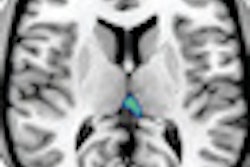The team from Brown University School of Medicine in Providence, RI, led by David Grand, MD, also concluded that pharmacologic agents to decrease bowel motion are not necessary for accurate detection of Crohn's disease with MR enterography.
"To our knowledge, this is the largest series to date to compare MR enterography to histology and colonoscopy," Grand said. "Given the excellent correlation between these tests, we believe MR enterography should be a first-line modality for evaluation of patients with inflammatory bowel disease."
The study analyzed 850 consecutive patients with known or suspected Crohn's disease who received routine MR enterography without pharmacologic bowel paralysis. Of those 850 subjects, 310 patients also underwent endoscopy with one or more biopsies within 90 days. The sensitivity and specificity of MR enterography compared to endoscopy and pathology were retrospectively evaluated.
Among the 310 consecutive patients, the technique's overall sensitivity was 84% and specificity was 76%, using endoscopy as a gold standard. Those results improved as the time decreased between the MR enterography and endoscopy studies.
Among 162 patients who underwent endoscopy within 30 days of MR enterography, sensitivity remained 84%, while specificity increased to 82%. When MR enterography was compared to a positive result in either endoscopy or pathology, specificity increased to 89%, positive predictive value was 88%, and negative predictive value achieved 84%.
"MRI is the perfect modality for studying patients with inflammatory bowel disease, because it is a lifelong disease, which will often require multiple studies," Grand added. "MRI can detect even subtle changes of inflammatory bowel disease without exposing these often young patients to ionizing radiation."
Grand said the goal of imaging inflammatory bowel disease now is to accurately and consistently differentiate active from chronic, or fibrotic, changes and appropriately triage patients to medical or surgical therapy. "We also would also like to study the ability of MR enterography to predict early response or failure of medical therapy," he added.



















